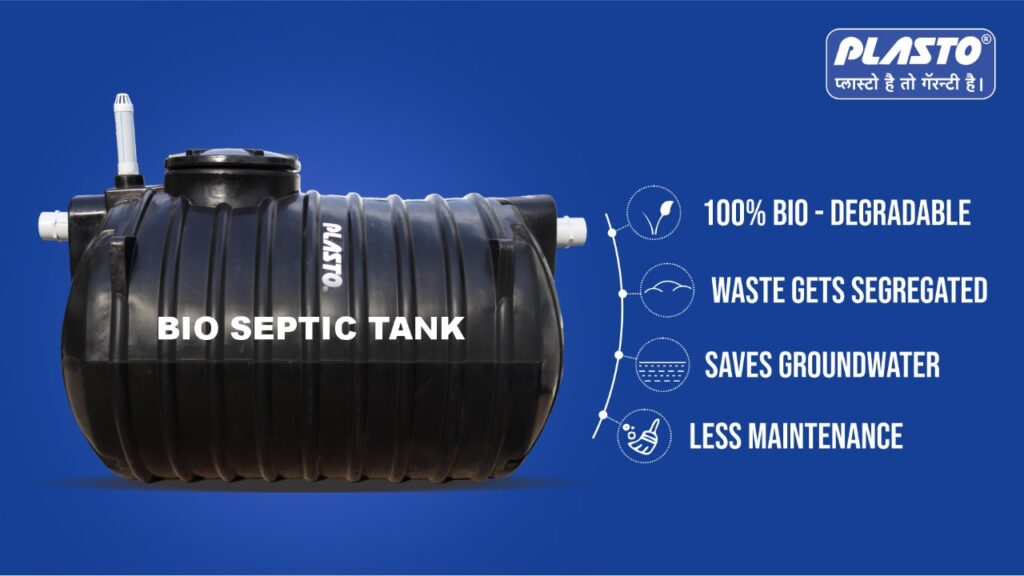In the quest for sustainable and environmentally friendly solutions, the Plasto Bio Septic Tank emerges as a groundbreaking innovation. As concerns about pollution and resource depletion escalate, the demand for eco-friendly alternatives has never been more urgent. In this regard, the Plasto Bio Septic Tank stands out as a game-changer in the field of wastewater treatment. In this blog, we will delve into the concept of a bio septic tank, explore the advantages it offers, and shine a spotlight on the remarkable features of the Plasto Bio Septic Tank.
Understanding the Bio Septic Tank:
A Sustainable Approach to Wastewater Treatment A bio septic tank, as the name suggests, employs biological processes to treat wastewater generated from households, commercial establishments, and other sources. Unlike conventional septic systems that simply store and partially treat sewage, bio septic tanks employ microbial activity to break down organic matter and pollutants, transforming them into harmless byproducts that can be safely released into the environment or reused for irrigation purposes.
The core principle behind a bio septic tank is the creation of a natural ecosystem within the tank itself. Beneficial bacteria and microorganisms are introduced into the tank to initiate the biological breakdown of organic materials. This self-sustaining process reduces the need for chemical additives and energy-intensive procedures, making bio septic tanks an attractive option for those looking to minimize their ecological footprint.
Advantages of the Plasto Bio Septic Tank

The Plasto Bio Septic Tank takes the concept of a bio septic system to new heights with its innovative design and features. Here are some of the compelling advantages it offers:
- Environmental Sustainability: The Plasto Bio Septic Tank significantly reduces the environmental impact of wastewater disposal. By harnessing the power of natural microorganisms, it efficiently breaks down waste, preventing groundwater contamination and minimizing soil pollution.
- Low Maintenance: Traditional septic systems require regular pumping and maintenance to prevent blockages and malfunctions. In contrast, the Plasto Bio Septic Tank’s design promotes the growth of beneficial bacteria, ensuring smoother and less frequent maintenance requirements.
- Space Efficiency: Plasto’s innovative design optimizes space utilization. The tank’s compact footprint makes it suitable for a variety of settings, including residential properties with limited space.
- Cost-Effective: The reliance on biological processes reduces the need for energy-intensive equipment and chemical additives. This not only benefits the environment but also leads to reduced operational costs over the system’s lifespan.
- Odor Control: One common concern with traditional septic systems is the potential for unpleasant odors. The Plasto Bio Septic Tank employs a natural decomposition process that minimizes odors, enhancing the overall user experience.
- Durability: Constructed from high-quality, durable materials, the Plasto Bio Septic Tank boasts a long lifespan, providing reliable wastewater treatment for years to come.
Conclusion
In an era where sustainability is paramount, the Plasto Bio Septic Tank shines as an exemplar of innovative wastewater treatment solutions. By harnessing the power of nature, this bio septic tank offers a range of benefits, from minimizing environmental impact to reducing maintenance costs. As we collectively strive for a greener future, solutions like the Plasto Bio Septic Tank remind us that innovation can indeed coexist with ecological responsibility.

